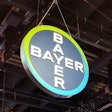MRI's ability to positively affect so many different clinical areas will be on display at the RSNA 2011 meeting in Chicago. From pediatric and breast imaging to high-field techniques for assessing mild traumatic brain injury and compact technology in the operating suite, scientific paper presentations, refresher courses, and education exhibits will show how the modality continues to expand its utility.
One of the novel advances in MRI technology is the subject of a Sunday presentation by researchers from NTT Medical Center in Tokyo, who have developed a new compact intraoperative MRI system for use in surgical suites (November 27, 11:15 a.m.-11:25 a.m., SSA15-04, Room N229).
The issue of MRI contrast agents is up for review in two informative scientific paper presentations. One will show how gadobutrol and gadofosveset contribute to contrast-enhanced MRI results (Monday, November 28, 10:40 a.m.-10:50 a.m., SSC12-02, Room N226), while another will detail how a single dose of the MRI contrast agent gadobutrol may be just as effective as a double dose of gadopentetate dimeglumine in cardiac MR images(Tuesday, November 29, 3:20 p.m.-3:30 p.m., SSJ04-03, Room S503AB).

A hands-on workshop on MRI-guided breast biopsy will also take place on Sunday (2:00 p.m.-3:30 p.m., RC150, Room E260). The need for MRI-guided breast biopsy and needle localization for abnormalities is increasing, as is MRI's prowess in identifying masses. The course will cover optimal positioning for biopsy, target selection and confirmation, various biopsy techniques, and potential problems.
At the Lakeside Learning Center, a multitude of education exhibits will focus on breast MRI. "3-Tesla MRI Mammography: Experience and Challenges" (LL-BRE4339) will present the advantages and challenges of 3-tesla compared with 1.5-tesla for breast MRI, techniques to achieve high-quality breast images, and necessary precautions when performing postprocessing breast MRI.
"A Resident's Guide to Magnetic Resonance (MR) Spectroscopy of the Breast" (LL-BRE4364) will give radiology residents information on a modality that can be challenging to learn, as it involves complicated biochemistry and physics. The session is designed help residents understand the molecular basis of breast cancer and the potential applications for MR spectroscopy.
Also at the Lakeside Learning Center will be an education exhibit on the use of MR angiography (MRA) to investigate vascular disease. "Magnetic Resonance Angiography of the Aorta: Overview of Current Imaging Techniques, Clinical Utilization, and Future Advances" (LL-VIE4463) will explore both contrast-enhanced and noncontrast MRA for imaging the aorta, as well as the modality's role in interventional planning and disease surveillance, among other topics.
Below are just a few of the highlights from a multitude of MRI scientific papers scheduled for presentation at RSNA 2011.
To view the complete RSNA scientific program and abstracts directly, visit the conference's website.


.fFmgij6Hin.png?auto=compress%2Cformat&fit=crop&h=100&q=70&w=100)
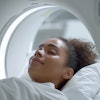
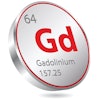

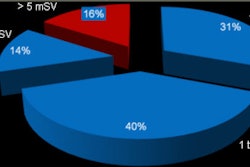
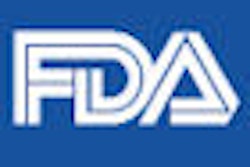
.fFmgij6Hin.png?auto=compress%2Cformat&fit=crop&h=167&q=70&w=250)











